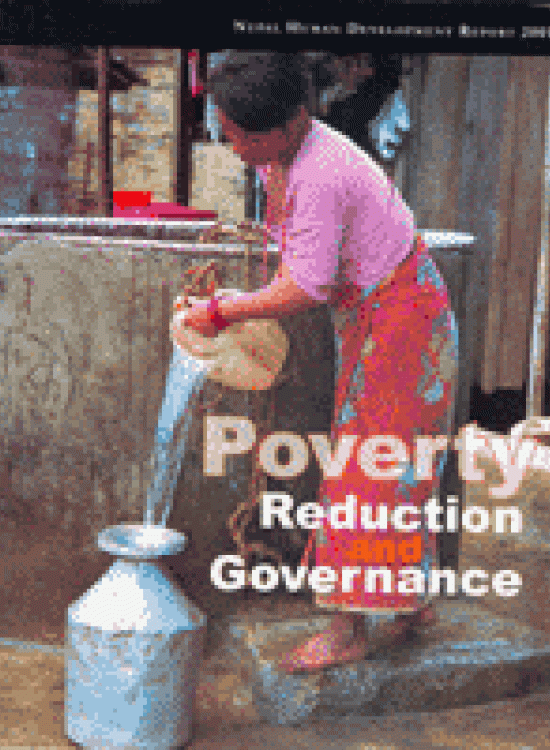Poverty Reduction and Governance Nepal

Download Report by Language
Document
nepal2001en.pdf
(2.76 MB)
Citation
Shankar P. Sharma - Principal Adviser , Bal Gopal Baidya - Author , Shyam K. Bhurtel - Author , Heather Bryant - Author , Arun Kumar Lal Das - Author , Yuba Rad Khatiwada - Author , Sriram Raj Pande - Author , Prakash Dev Pant - Author , Jaysingh Sah - Author , Sharad Sharma - Author , Suman K. Sharma - Author , Murari Updhaya - Author , Gautam Yadama - Author. 2001. Poverty Reduction and Governance Nepal. New York.
Poverty Reduction and Governance Nepal
Posted on: January 01, 2001
The Nepal Human Development Report 2001 explores the twin concerns of Poverty Reduction and Governance through the lens of human development. The Report finds that although public policy in Nepal takes human development as its overarching goal, the country's citizens continue to suffer from low life expectancy, low literacy and living conditions that deny them dignity. In short, Nepal's levels of human development remain among the lowest in the world. Poverty perpetuates itself because of inequality in the distribution of resources and opportunities. To find a way out of this situation, the Report draws on the country's heritage in social mobilization, suggesting that human development and good governance can create a "virtuous cycle." As governance improves, resource allocation becomes more equitable, leading poverty to decline and human development levels to rise. Conversely, as health, education and living conditions improve, people's capacity to participate in decision-making processes grows, and citizen ownership of governance bodies and institutions expands, producing greater transparency and equity in the distribution of resources and heightened effectiveness and efficiency in service delivery.